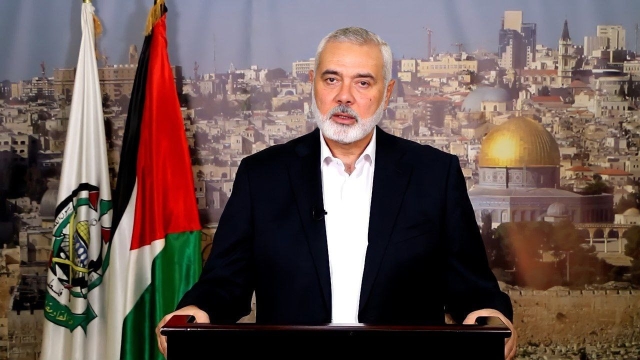The protracted dialogue concerning a ceasefire in Gaza has hit yet another impasse, as Hamas obstinately refuses to agree to any truce that falls short of entirely halting hostilities. The militant group's intransigence, coupled with their exorbitant and unreasonable demands, starkly contrasts with Israel's commitment to safeguarding its citizens and securing the release of hostages. Earlier on Sunday, it was reported that Hamas added another caveat that they will not accept a deal unless it guaranteed by Russia, China and Turkey, the Islamist-run country that just suspended all trade with Israel.
Hamas has adamantly dismissed any proposal that does not guarantee a complete cessation of the conflict, illustrating a persistent pattern of rejecting ceasefire offers. This has been further complicated by their audacious requirements, including the release of high-profile terrorists from Israeli detention—a demand that underscores their brazen stance.
Hamas says it wants Russia and Turkey to be guarantors of ongoing ceasefire talks with Israel. pic.twitter.com/RIlPdJURjK
— Globe Eye News (@GlobeEyeNews) May 5, 2024
Israeli Prime Minister Benjamin Netanyahu, amid these fraught negotiations, faces accusations from Hamas of personal interference aimed at prolonging the conflict, allegedly due to vested interests. Yet, Netanyahu's firm position remains clear: the eradication of Hamas as a non-negotiable precondition for peace and the unconditional return of all hostages.
Amidst rising domestic pressure, with tens of thousands of Israelis rallying against the ongoing state of negotiations and demanding urgent action to bring back their loved ones, the Israeli government persists in its refusal to capitulate to Hamas's maximalist demands. These demonstrations highlight the Israeli public's outcry for resolution, not merely a temporary halt in fighting.
🚨🇵🇸🇮🇱GAZA CEASEFIRE DEAL LOOKS UNLIKELY
— Mario Nawfal (@MarioNawfal) May 5, 2024
Officials from Hamas are reportedly frustrated with Israel’s refusal to agree to a complete cessation of the war in Gaza and a withdrawal of troops.
While they want to agree to a deal, they are unwilling to do so “at any cost” and say… pic.twitter.com/Q2NSaYDEw5
As diplomatic efforts continue with another round of talks in Cairo, the atmosphere remains tense. Hamas's demands for security assurances against an Israeli ground assault in Rafah—where their leadership is purportedly fortified—further complicate the dialogue. The Israeli delegation's participation hinges on a substantive response from Hamas, which has yet to materialize, reflecting a continuous cycle of delays and prevarications.
The humanitarian situation in Gaza, described by the United Nations as a burgeoning famine, adds an urgent dimension to the negotiations. However, Israel contests these claims, presenting evidence of substantial aid deliveries to the region, obstructed not by Israeli restrictions but by logistical failures within Gaza itself.
The contents of 600 aid trucks are waiting to be collected by the @UN on the Gaza side of Kerem Shalom in a way that is preventing the transfer of additional trucks. @COGAT has extended crossing hours and scaled up capacities. pic.twitter.com/phEjZvu2Bg
— Embassy of Israel to the USA (@IsraelinUSA) April 11, 2024
This ongoing saga of failed negotiations, marked by Hamas's relentless rejections and extreme demands, casts a long shadow over the prospects for peace, underscoring the group's apparent disregard for the dire humanitarian and security situation in Gaza.


